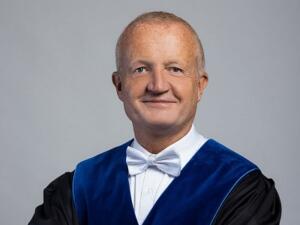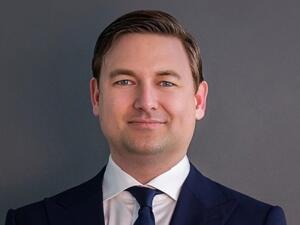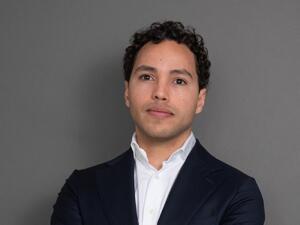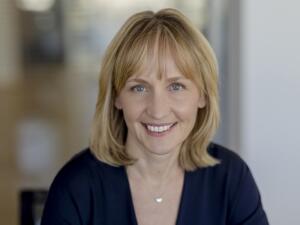mRNA patent wars kick into higher gear during dog days of summer
The global patent disputes between mRNA vaccine manufacturers have once again set the patent community buzzing. While GSK launched several lawsuits at the UPC against Moderna, BioNTech and Pfizer in July, BioNTech's pending acquisition of GSK's cooperation partner CureVac has shifted the landscape. CureVac has now reached an agreement with BioNTech and Pfizer to end its patent proceedings.
11 August 2025 by Mathieu Klos
After BioNTech announced its plans to acquire German competitor CureVac, a settlement seemed inevitable. Last Friday, CureVac, BioNTech and its cooperation partner Pfizer announced they would end their patent dispute in the USA. Subject to the successful completion of the acquisition, all other proceedings between the parties concerning mRNA-based vaccines will also conclude.
CureVac initiated the dispute by suing BioNTech in Germany over patents and several utility models in summer 2022. BioNTech and its US partner Pfizer also sued CureVac in the US.
A BioNTech press release states that the Mainz-based company and Pfizer “entered into agreements with CureVac and an affiliate of GSK to resolve the pending patent litigation in the United States, and set a framework for resolving patent litigation and allegations of patent infringement between BioNTech, Pfizer and CureVac outside the U.S. (subject to closing of the Acquisition).”
BioNTech and Pfizer will receive a non-exclusive licence from CureVac to manufacture, use, import into the US and sell mRNA-based COVID-19 and influenza products. This licence will extend worldwide upon completion of the acquisition.
As compensation, BioNTech will pay GSK $370 million and a 1% royalty on US sales of the licensed products. CureVac and GSK are linked by a cooperation in mRNA vaccines, which both companies recently restructured. Unlike BioNTech and Moderna, neither company successfully brought a Covid-19 vaccine to market.
Following the acquisition’s completion, BioNTech will pay an additional $130 million to GSK and a 1% royalty on rest-of-world sales. Meanwhile, Pfizer has agreed to reimburse BioNTech for $80 million and half of claimed royalties.
Despite the pending acquisition, CureVac will also benefit financially from the deal. BioNTech will pay CureVac $370 million and a 1% royalty on US sales. After completion of the acquisition, BioNTech will pay another 1% royalty on rest-of-world sales.
GSK extends litigation
Despite the settlement between CureVac and BioNTech/Pfizer, GSK announced over the weekend that it would continue its litigation against BioNTech and Pfizer in the US and Europe, stating that “the settlement does not impact GSK’s enforcement of its own patents against Pfizer and BioNTech in the U.S. and in Europe”.
In April 2024, GSK sued BioNTech and Pfizer in the District Court of Delaware for infringement of two patents. In July 2025, the company filed two lawsuits with the Unified Patent Court. The first infringement suit relates to EP 4 226 941 and EP 4 066 856 (case ID: ACT_32285/2025). The second action alleges infringement of EP 2 590 626 (case ID: ACT_32214/2025).
GSK filed both lawsuits at the local division in The Hague. They target various European entities of both companies and contain detailed long-arm jurisdictional requests.
Dutch patent judges have a tradition of granting cross-border injunctions. Presiding judge Edger Brinkman and Margot Kokke are handling the cases. Stefan Schilling from the Hamburg local division is the third judge.
- Edger Brinkman
- Margot Kokke
- Stefan Schilling
GSK turns to Bird & Bird again
In addition to the UPC actions, GSK filed an infringement action in Ireland against both opponents based on the same patents (case ID: H.P.2025.0003802).
According to the UPC case search, Tjibbe Douma and Carlos van Staveren are assisting GSK in the lawsuits. Their law firm Bird & Bird has long-standing relationships with both GSK and its cooperation partner CureVac. Bird & Bird represented CureVac against BioNTech and Pfizer in Germany and the UK. A German team also represented GSK in a UPC case against Pfizer over RSV vaccines. The dispute settled in April.
Bird & Bird is also conducting the Irish proceedings against BioNTech and Pfizer.
- Tjibbe Douma
- Carlos van Staveren
BioNTech relies on core advisors
According to the UPC case search, BioNTech has retained Tess Waldron and Joel Coles from UK firm Powell Gilbert. Penny Gilbert, Peter FitzPatrick and newly hired patent attorney Charlotte Malley complete the team. The firm also represents BioNTech in the Irish proceedings through its Dublin office.
Powell Gilbert has a close relationship with the German biotech company. The firm is involved in most of BioNTech’s ongoing disputes — whether coordinating the disputes or conducting the UK proceedings.
- Tess Waldron
- Joel Coles
BioNTech also relies on the German practice of Hoyng ROKH Monegier led by Christine Kanz and Munich-based patent attorney firm ZSP in various proceedings. For example, in a UPC lawsuit brought by Promosone.
Both firms are also involved in the cases against GSK. Dutch partner Theo Blomme as well as Max von Leitner, Lisa-Marie Rauschendorfer, Ling-Ling Dorsch, Leon Dijkman, Moritz Lohr and patent attorney Alba Folgueiras Gonzalez complete the Hoyng ROKH Monegier team. ZSP partner Georg Schnappauf and Sebastian Höpfner are also involved.
- Theo Blomme
- Wim Maas
- Christine Kanz
Pfizer’s counsel unknown
However, Powell Gilbert represents only BioNTech against GSK. It is not yet publicly known which law firm Pfizer will choose. Taylor Wessing is likely to be a strong candidate. The law firm regularly represents Pfizer in patent cases through its London and Dutch teams. Dutch partner Wim Maas, for example, represents Pfizer in the Dutch mRNA cases against Moderna.
Pfizer also relies on other law firms in other disputes. Marks & Clerk, for example, represented Pfizer together with Clifford Chance in the battle with GSK over RSV vaccines. A Clifford Chance team represents Pfizer in the UPC dispute with Promosone. Unlike Taylor Wessing, however, neither law firm has Dutch patent litigators.
GSK also sues Moderna
GSK’s litigation campaign extends beyond BioNTech and Pfizer. In July, the company launched a major offensive against leading Covid-19 vaccine manufacturers. With Bird & Bird’s support, the company filed two lawsuits against Moderna at the local division The Hague. The patents-in-suit are the same as in the cases against BioNTech and Pfizer. Once again, Brinkmann, Kokke and Schilling make up the judicial panel (case IDs: ACT_32173/2025 and ACT_32120/2025).
The UPC case search names Thomas Wolter and Matthew Naylor of Mewburn Ellis as main representatives for Moderna. Both patent attorneys are also registered as UPC representatives. The patent attorney firm already represents Moderna in an EPO opposition against GSK’s EP 941 and has filed several patent applications for Moderna at the European Patent Office.
- Thomas Wolter
- Matthew Naylor
- Rutger Kleemans
However, the firm does not have an office in the Netherlands. Moderna also maintains close relationships with Freshfields here. Partner Rutger Kleemans coordinates the dispute with BioNTech and Pfizer, for example. An international Freshfields team also represents Moderna in defending two UPC lawsuits filed by Arbutus Biopharma and Genevant Sciences.
It is therefore likely that Moderna will also involve a Freshfields team in the new dispute with GSK. However, JUVE Patent has not yet received confirmation of this.
The Hague hub for mRNA litigation
The UPC is steadily becoming an attractive venue for pharmaceutical litigation. Merz recently filed the first SPC claim against Viatris here. However, lawsuits concerning mRNA patents are increasingly becoming central, with BioNTech and Moderna particularly in the spotlight.
A total of seven UPC lawsuits now feature the technology, which generated substantial sales for BioNTech and Moderna during the coronavirus pandemic and is set to be used for future influenza drugs.
Most lawsuits reached the UPC in 2025, including two each from GSK against BioNTech, Pfizer and Moderna. Arbutus Biopharma and Genevant Sciences also filed lawsuits against Moderna at the local division The Hague in April.
The Hague is now hearing six of the seven mRNA proceedings at the UPC. Promosone filed its lawsuit against BioNTech and Pfizer at the Düsseldorf local division at the end of 2024.













